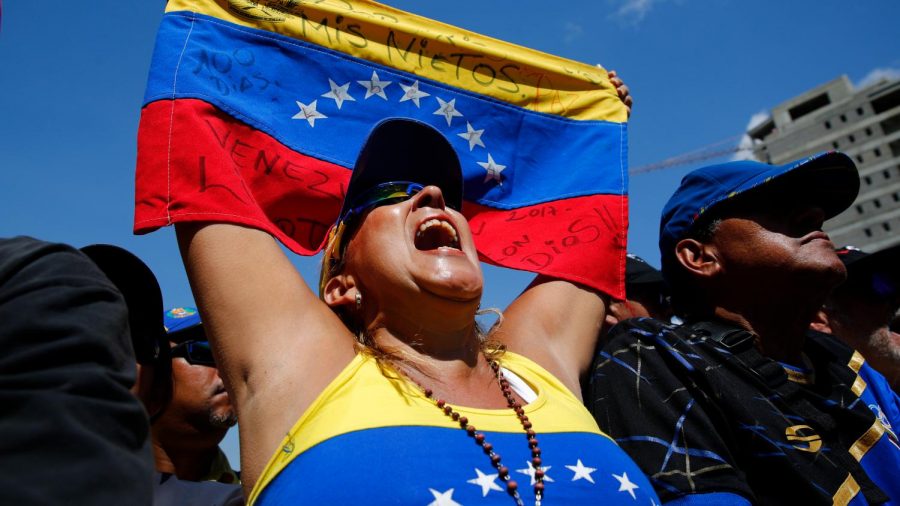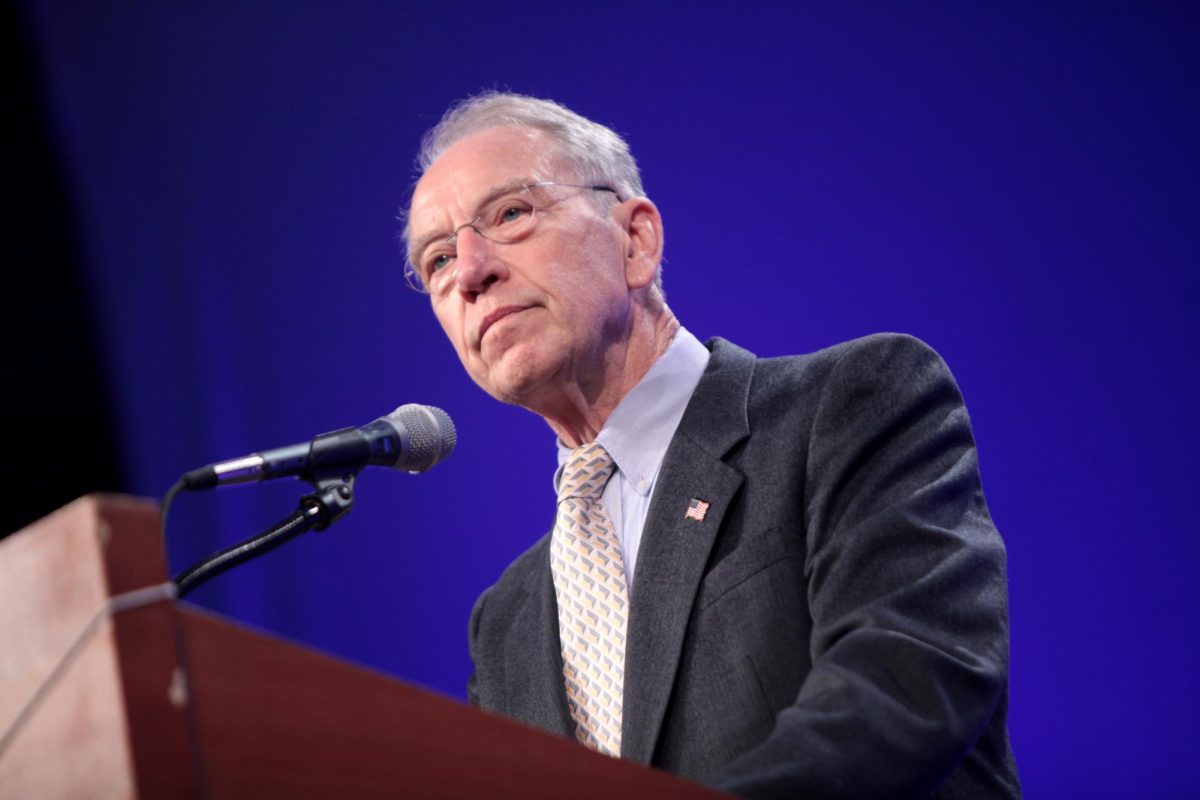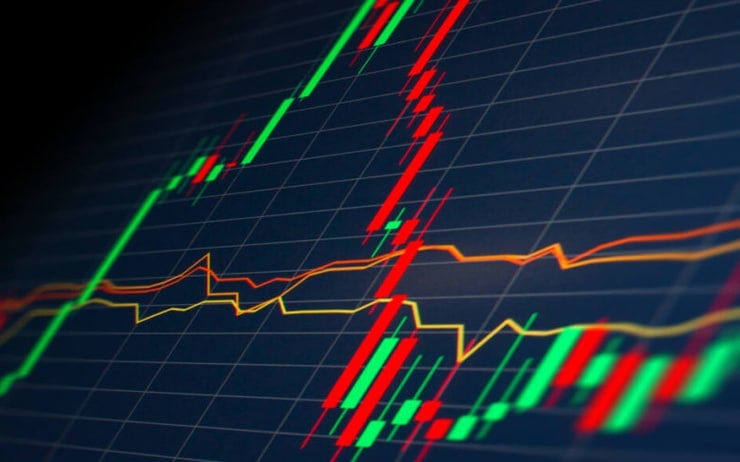After years of an ongoing economic crisis, Venezuela faces political turmoil due to the lack of a legitimate president.
The start of Nicolas Maduro’s presidency incited the chaos the country is currently experiencing. Maduro is infamous for disregarding Venezuela’s rampant poverty and instead exploiting the broken economy for his own benefit. Over the last four years, the country’s Gross Domestic Product (GDP) dropped by nearly 35 percent, more than the United States’ did during the Great Depression. Venezuela now holds the highest inflation rate on record, making its currency, the Bolivar, essentially worthless. Over one million Venezuelans immigrated to Colombia in search of jobs and food, escaping the scarcity back home.
“Socialism isn’t what led to Venezuela’s current economic situation,” Jeffrey Grant, an economist and research specialist, explained. “It was Venezuela’s unique brand of Petro socialism: a tenable ideology when oil prices remain at record highs, a catastrophe when oil prices sink and remain low.”
Oil plays a strong role in the Venezuelan economy. However, an economy dependent on oil is always at risk of collapsing as prices rise and fall frequently. Under previous president Hugo Chavez, oil prices were at record highs, and the Venezuelan government was able to provide its people with subsidies and resources from their wealth. However, recent plunges in oil prices mean that the government no longer can support its people with basic needs like health care and jobs. Instead, dictatorial leader Maduro takes the remaining oil money to pay the military and government workers supporting him.
“What little oil revenues are left are no longer being distributed equitable to the people. They are instead being used to prop up Maduro’s allies in the country’s military, the only force keeping the beleaguered president in power,” Grant continued.
Millions of Venezuelans are escaping their country in search of a more stable life, and most of those individuals are migrating to Colombia. Compared to other countries, Colombia’s border has remained relatively easy to cross. In an age when immigration policy remains a controversial issue in politics, many are astonished by how Colombia has welcomed over one million people with open arms.
“My uncle lived in Venezuela for many years, but he was forced to move back home to Colombia because the situation is so bad,” Sebastian Posso, a Colombian citizen, said. “A month’s salary was barely enough to buy one meal. I understand why so many people are coming to Colombia.”
Adding to the chaos is the current political structure. The opposition party argues that the election last May, in which Maduro was re-elected, was rigged; they claim that the rightful winner is Juan Guaido. Guaido is the leader of Venezuela’s National Assembly (legislative body) and is assuming the presidential role alongside Maduro until his anticipated resignation.
“The United States joins with all freedom loving nations in recognizing the National Assembly as the last vestige of democracy in your country,” Vice President Mike Pence claimed.
With the Trump administration in support of the opposition leader, many are hopeful that democracy will prevail.
Robert Jollason, a Trump supporter from the Bay Area said, “I hope that eventually this crisis comes to an end, because it has completely ruined the country. I am happy to see Trump supporting Guaido and I think that the more support he gets from other world leaders, the closer they will get to being rid of Maduro.”












